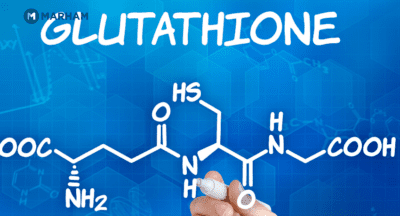When taking glutathione supplements, it is essential to be mindful of certain substances and lifestyle habits that can potentially diminish its effectiveness. Avoiding alcohol, caffeine, certain medications, processed foods, smoking, and dairy foods can help maintain optimal glutathione levels and maximize its health benefits.
You may consult a nutritionist to get a diet plan to try when you are on your glutathione supplementation.
Things to Avoid while Taking Glutathione
Glutathione is a powerful antioxidant found naturally in the body, playing a crucial role in protecting cells from oxidative damage and supporting the immune system. It is also available as a dietary supplement and is known for its potential health benefits.
When taking glutathione supplements, it’s important to avoid the following:
1. Alcohol and Smoking
To ensure the best possible results from glutathione supplementation, it’s advisable to avoid alcohol consumption or limit it to moderate levels.
Avoiding alcohol and smoking when taking glutathione is recommended for several reasons:
- Liver Overload: Both alcohol and glutathione are processed by way of the liver. Excessive alcohol consumption and smoking can burden the liver, compromising its potential to metabolize glutathione and different important substances successfully.
- Oxidative Stress: Alcohol and smoking is thought to promote oxidative pressure, leading to the production of dangerous free radicals that may damage cells and tissues. Glutathione’s primary role as an antioxidant is to counteract oxidative strain, so its effectiveness can be compromised whilst alcohol is present.
- Cellular Damage: Alcohol consumption can make a contribution to cellular harm, that is the other of what glutathione targets to prevent. Taking alcohol and smoking while using glutathione can also counteract its health benefits.
2. Caffeine
To optimize the benefits of glutathione supplementation, it’s miles advisable to restrict caffeine consumption or consume it carefully. Avoiding caffeine while taking glutathione is recommended because of the subsequent motives:
- Glutathione Levels: Caffeine intake has been shown to lessen the degrees of glutathione within the body, diminishing its antioxidant properties and compromising cellular safety against oxidative stress.
- Impaired Absorption: Caffeine can clash with the absorption of vitamins, consisting of glutathione 6 potentially decreasing its bioavailability and effectiveness.
- Adverse Effects: Excessive caffeine intake can result in diverse health troubles consisting of accelerated heart rate, anxiousness, tension, and disrupted sleep patterns, which may counteract the useful results of glutathione.
3. Certain Medications
Certain medications can deplete glutathione levels or interact with glutathione, potentially lowering its effectiveness. Some key points to consider are:
- Medication Interactions: Glutathione supplements may interact with certain medications, altering their effectiveness or increasing the risk of side effects. It’s crucial to consult a healthcare professional before combining glutathione with other medications.
- Immune Modulating Medications: Glutathione’s role in supporting the immune system may interact with medications that also impact the immune response. Proper guidance from a healthcare provider is essential to manage potential interactions.
4. Processed and Fried Foods
Not eating processed and fried foods is beneficial when taking glutathione due to the following reasons:
- Reduced Nutrient Content: Processed and fried foods often lack essential vitamins and antioxidants that aid glutathione function and production. A diet rich in whole foods gives the essential building blocks for the most effective glutathione levels.
- Harmful Additives: Processed ingredients can also contain dangerous components, preservatives, and chemical substances which could intrude with glutathione’s antioxidant properties and overall effectiveness.
- Inflammation: Processed and fried foods can contribute to chronic inflammation, which can also negatively affect cellular health and the body’s capability to produce and utilize glutathione.
5. Dairy Foods and Drinks
Avoiding dairy foods and drinks may be beneficial when taking glutathione due to the following reasons:
- Cysteine Content: Glutathione is synthesized within the body from amino acids, and cysteine is a crucial thing. Some dairy items incorporate casein, which could intervene with the absorption of cysteine.
- Allergies: Dairy items can trigger irritation and allergic reactions in some people. Inflammation can cause oxidative stress, which may negatively impact glutathione stages and its antioxidant function.
- Lactose Intolerance: Lactose intolerance can cause digestive troubles and pain, probably hindering nutrient absorption, such as amino acids needed for glutathione synthesis.
Lifestyle Recommendations for Enhanced Glutathione Levels
To enhance glutathione levels and support its effectiveness, consider incorporating the following lifestyle recommendations:
- Consume a balanced diet wealthy in greens, grains, and lean proteins. These foods offer important nutrients, antioxidants, and amino acids that aid glutathione production.
- Engage in regular physical activity to promote blood circulation, increase antioxidant defenses, and enhance glutathione synthesis.
- Chronic stress can burn up glutathione levels. Practice strain-decreasing techniques like meditation, yoga, or deep respiratory breathing exercises to help normal well-being.
- Reduce or get rid of alcohol intake and avoid smoking to prevent glutathione depletion and oxidative 2damage.
- Prioritize sufficient 4sleep to allow the body to regenerate and optimize glutathione production.
- Drink plenty of water to support detoxification processes and overall cellular health.
- Limit exposure to environmental toxins, such as air pollution and harmful chemicals, which can increase oxidative stress.
- Some supplements, like vitamin C, vitamin E, and selenium, can complement glutathione’s antioxidant function and enhance its effectiveness.
Ending Notes
Glutathione performs a vital role in shielding our cells from oxidative harm and assisting a healthy immune system. Consulting a dietitian is vital to tailor a customized method to glutathione supplementation and lifestyle choices based totally on individual health needs.
Embrace those insights and take proactive steps to assist your body’s natural defenses and liberate the full capacity of glutathione for a healthier and happier life.

